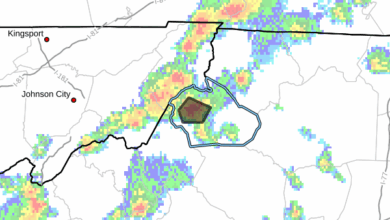Last Updated on June 18, 2018 7:46 pm
Public health officials with the North Carolina Department of Health and Human Services are urging people to take steps to protect themselves from heat-related illnesses with sweltering heat expected to impact parts of North Carolina this week.
“High temperatures, along with high humidity levels can be dangerous,” said State Health Director and DHHS Chief Medical Officer Elizabeth Tilson, M.D., MPH. “People spending time outdoors for work or recreation should protect themselves from the sun and drink plenty of fluids to minimize risk of heat-related illness.”
Symptoms of heat-related illness include muscle cramps, fatigue, weakness, dizziness, fainting, headaches, nausea and vomiting. Heat-related illness is preventable with proper precautions. However, every summer there are about 3,000 heat-related illness emergency department visits. Children, older individuals, outdoor workers and those with chronic health conditions are most vulnerable.
To reduce risk of heat-related illness:
- Increase fluid intake
- Take frequent breaks in cool or air-conditioned places if spending extended time outside
- Reduce normal activity levels
- Speak with your physician about how to stay safe if you take medicines that make you more vulnerable to heat, such as drugs for high blood pressure, migraines, allergies, muscle spasms, mental illness and tranquilizers
- Check on neighbors, and if working outdoors, check on your co-workers
- Never leave children or pets unattended in vehicles, especially during warm or hot weather, as temperature levels inside a car can reach a lethal level in a matter of minutes
For more information on how to prevent heat-related health issues and to learn about heat-related illness in North Carolina, visit: http://publichealth.nc.gov/chronicdiseaseandinjury/heat.htm.
Individuals and families are also encouraged to check with their county department of social services about the availability of and their eligibility for Crisis Intervention Program funds.

















